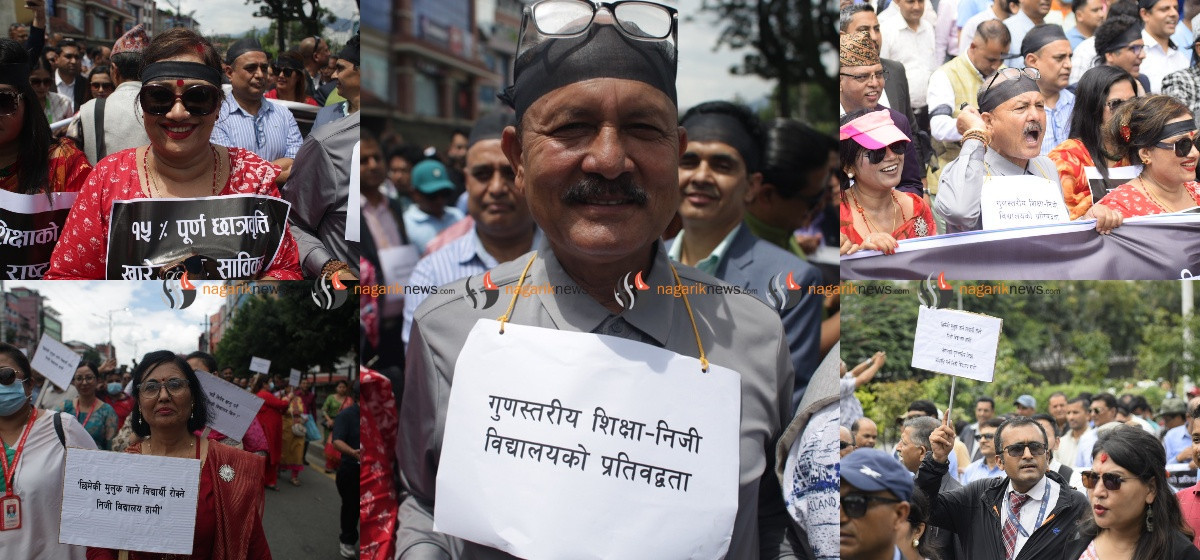KATHMANDU, Aug 20: The Private and Residential Schools’ Organization Nepal (PABSON) and the National Private and Residential Schools’ Association Nepal (NPABSON) have announced a series of protest programs.
The organizations briefed the media on Wednesday, stating that the protests, beginning Thursday, will continue until their demands are met. They expressed dissatisfaction with certain provisions of the School Education Bill and outlined five key demands.
No protest activities are planned for August 23. The organizations have announced that if their demands are not met by August 24, they will escalate to a decisive protest. “We will wait until the 24th. If the demands are not fulfilled, we will close schools and intensify the protest from the 25th,” said PABSON President Krishna Prasad Adhikari.
Private schools respond to metropolis by relocating

According to the protest schedule, principals will stage a demonstration with banners at Maitighar Mandala at 11:00 AM on Thursday. The following day, school buses across the country will display black flags in protest. At 1:00 PM, participants will gather at Maitighar Mandala in Kathmandu to stage a sit-in around the Education, Health and Technology Committee and the Federal Parliament.
The protest plan for August 22 includes driving school buses around local neighborhoods in a city parade. In Kathmandu Valley, a 27-kilometer rally with black flags and banners is also scheduled, culminating in a gathering at Maitighar Mandala at 1:00 PM.
The private schools’ demands include removing the term “full scholarship”; repealing provisions requiring schools to provide non-educational items such as uniforms, stationery, educational materials, and meals/snacks; deleting the provision requiring schools registered under the Company Act to operate as “non-profit”; and retaining the right of scholarship distribution with the schools through a transparent committee that includes representatives of local government.
They have also demanded the repeal of discriminatory provisions in the Scholarship Act 2021, Section 3(a), and Rules 2060, Section 10(a), which reserve 45 percent scholarships, along with the 2077 amendment that allows only students from community schools (Grades 6–10) to pursue higher education under certain programs.



































